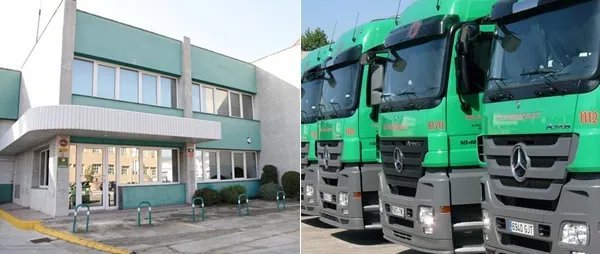In February 2020, Dutchman, Jurgen Sinnaeve, joined Transdonat. This is a Spanish family business. It has been active in that country's fruit and vegetable transport sector for 60 years already. "We transport mainly fruit and vegetables to several European countries. There are a few important ones. They are the United Kingdom, Germany, Belgium, the Netherlands, Poland, the Czech Republic, and Austria."
Transdonat's fleet consists of 80 trucks. "Our office is in the center of Valencia. And our logistics are based in Ontinyent. We'll soon be opening an office in the Murcia region," says Jurgen. As Operational Director, he's responsible for day-to-day operations. The transport company's export streams come from all of Spain's large production areas. These include Valencia, Murcia, and Almeria. And in the summer from Lleida too. "We work directly with exporters and supermarkets."

According to Jurgen, return loads are becoming increasingly challenging for the entire Spanish transport sector. "It's an issue for all the carriers. There's a vast difference between the import and export markets. That's difficult to explain to clients. But something must be done about this. Especially if it creates an imbalance, and you can't cover your costs anymore."
There are many initiatives with other modes of transport. But, according to Jurgen, these don't yet create competition for road transport. "Of course, every container that goes by sea is one less that goes road. However, the total amount of freight that's transported intermodally is still minimal. The CO2 saved seems to often be only relative. Our trade sector, with its large retail clients, is too time-dependent for this."
The operational director considers fleet modernization to be an important development. "Vehicles are increasingly moving toward becoming self-driving. So, the driving profession is changing. In the past, drivers used to constantly be busy shifting gears and braking. That's now done almost automatically. The driver has to rely on electronics."
"In the long term, I expect transportation to become increasingly automatic. Drivers will only jump in if there's a potentially dangerous situation or the system is disabled. It's important, however, that we keep the profession attractive to young people. Drivers spend long periods away from home and work irregular hours. There has to be something to compensate for that."
"What effect Brexit will have is also still very unclear. Since there's no deal yet, no-one knows how things will change exactly. If it turns out to be a hard Brexit, things might become difficult. But we're also happy to meet those challenges. Nobody knows what the future holds. However, we know we need to diversify. So, we're actively looking for new markets and opportunities," Jurgen concludes.
For more information:
Jurgen Sinnaeve
Transdonat S.A.
Tel.: + 34 (0) 963 822 400
Mob: +34 (0) 609 152 515
Email: jsinnaeve@transdonat.es
